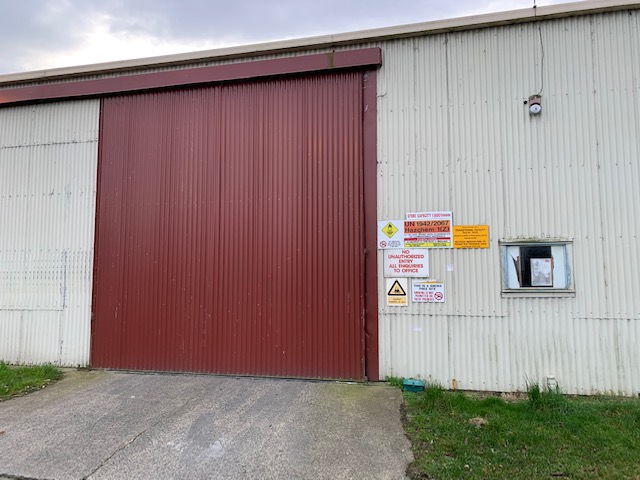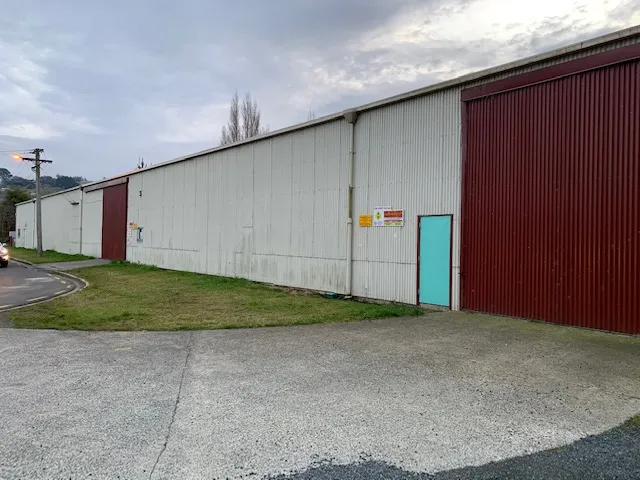Table of Contents
Sue Grey
UPDATE: The photo originally supplied to The BFD of the warehouse was incorrect and the post has been updated with a different photo to correct that error.
I live in Sawyers Bay, Dunedin There is up to 1800 kgs of Ammonium Nitrate stored in 2 warehouses next to residential areas. We are scared. Explosions of this chemical have been occurring for over 100 years. It is not just Beirut, in 2015, in Tianjin China 173 people died and in 1947 in Texas City 581 died from another explosion. I join Sue Grey (see below) in calling for The NZ Government to ban the storage of dangerous chemicals in residential areas.
Cobham Surrey
Sawyers Bay
On 4-8-2020 according to the BBC, a quantity of ammonium nitrate stored in a Beirut warehouse caught fire and exploded. 137 are reported dead and 5,000 injured. The scene is of utter devastation. People are asking why was such hazardous explosive material stored near a residential area?
[Beirut Update: as of 8-8-2020 the number of dead has been revised to 157, missing 80 and injured 5,000].
On Friday, an article appeared in the ODT (Otago Daily Times) describing how this same explosive chemical is stored in a warehouse in a residential area of Dunedin.
“Local residents are extremely concerned about their safety,” says Sawyers Bay resident Adrian Black. “We should not have to worry about the safety of chemicals are stored near our homes.”

The NZ Outdoors Party says the current lax approach to dangerous chemicals is not good enough. “The Dunedin example exposed by the Otago Times is very serious. Yet it is one of many recent cases where chemicals have been stored inappropriately,” says co-leader Sue Grey.
An incident at Pest Control Research in Christchurch in May last year resulted in a man being admitted to intensive care, after accidental exposure to the deadly poison sodium fluoro-acetate, (“1080”). The Bromley warehouse where that incident occurred is next door to a swimming pool used by families.
The Bromley incident was not reported to authorities for several weeks. The premises remained contaminated for two weeks after the incident before the Emergency services were called in to decontaminate the site. Worksafe is prosecuting for this incident.
Another example is the storage of thousands of tonnes of a hazardous “ouvea” from Tiwai Point Aluminium Smelter that has been sitting in Mataura since 2014. Ouvea gives off toxic ammonium gas when it gets wet. This contaminant got nationwide attention when the Mataura River threatened to flood the Ouvea storage area in early March this year.
Despite the emergency evacuation in March, it appears that nothing much has changed, and there was another Ouvea incident in Mataura just a couple of weeks ago.
The Otago Daily Times report indicates that the storage of hazardous chemicals near residential homes near Dunedin is an ongoing problem.
The ODT article headline states ‘the risk is minimal’. The people of Beirut may have believed the risk was minimal for the last 6 years; but not anymore. Locals are asking how the risk can be minimal when the storage facility is next door to a petrol station, metres from homes and a toddlers’ Playcentre and 400 metres from a primary school? Petrol stations alone are hazardous and an accident, with for example a cigarette or a spark, might trigger a fire that ignites and detonates the ammonium nitrate next door.
“The NZ Outdoors Party stands with and supports the people of Dunedin, Mataura and Bromley and everywhere else in New Zealand who want to live in a safe environment,” says Sue Grey. “In New Zealand, we have an incredibly lax attitude towards hazardous chemicals. Once we proudly claimed to be “Clean and Green”. We spent a fortune cleaning up contaminated sites such as the Mapua Fruitfed site, yet more contaminated sites continue to be created. We have somehow been lulled into believing that deadly agricultural, pest control and industrial chemicals are safe.”
“The series of incidents, the Beirut disaster, and recent community focus on health and avoiding risks, are a timely reminder. It has become urgent for New Zealand government to step up and urgently review not only our rules for chemical storage, but also compliance with these rules,” says Sue Grey. “People need to know they are safe in their own homes and that dangerous chemicals are not stored nearby. The NZ Outdoors Party seeks safer alternatives to toxic chemicals and safer ways to store and use them. We must ensure that we do not become the next Beirut.”
If you enjoyed this BFD article please share it.









